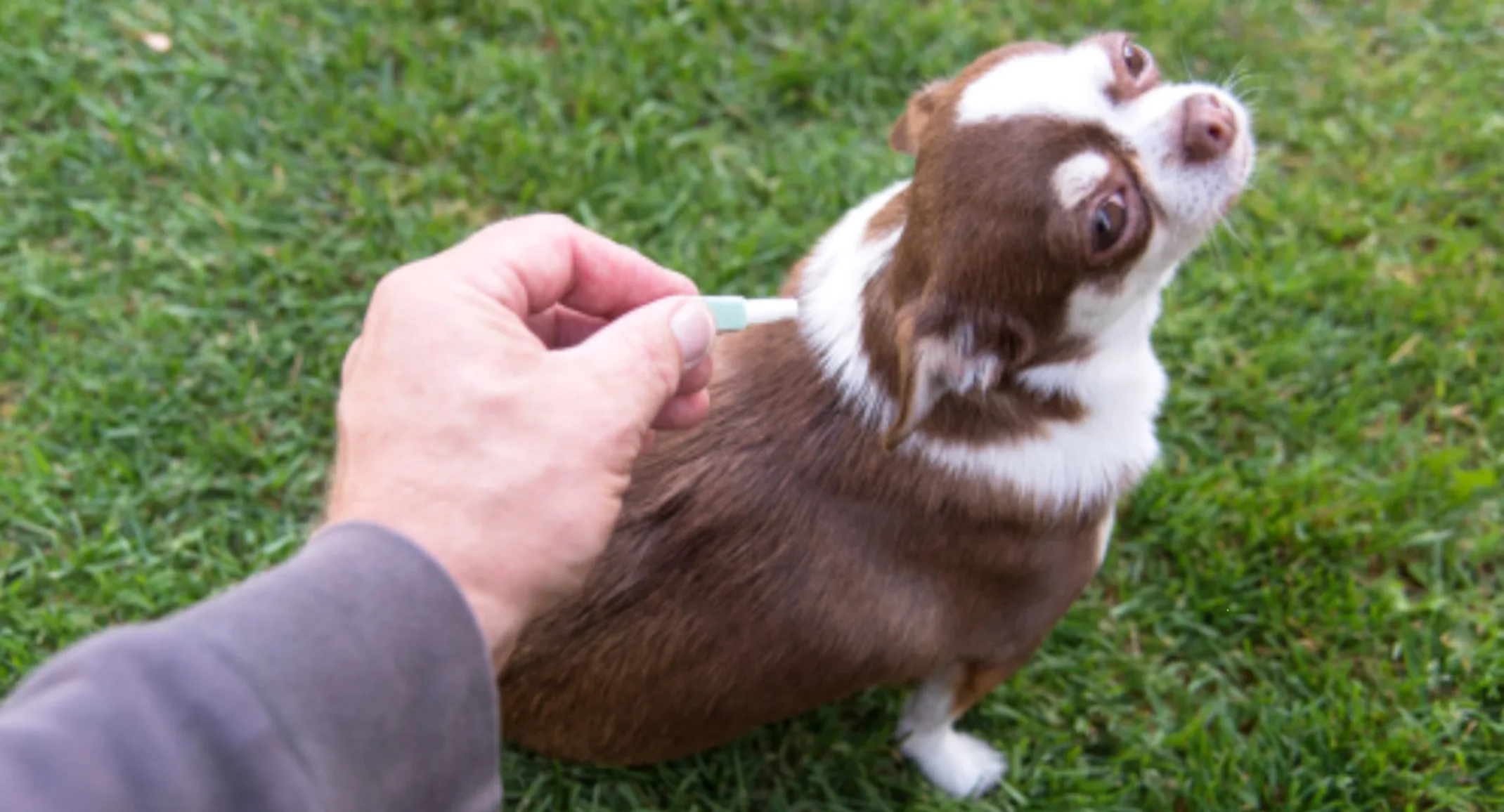Fleas on Dogs in Hingham, MA: Signs and How to Prevent Them
Pests and Parasites

Dog fleas can trigger a plethora of health problems for your dog if they are not treated immediately.
Dogs in Hingham can lose parts of their hair by biting at fleas, and fleas will cause infestation on a dog’s back or other parts of their body and lay eggs or leave parasites behind. Anemia can be another outcome, which can be lethal for your dog.
There are several signs that a dog has fleas. These include your dog scratching furiously at their skin, pulling their hair out, or shaking their head frequently. Treatment for fleas can include flea and tick collars and topical treatments. It is critical to eradicate fleas before they become a severe problem.
Dogs sometimes become infested with fleas through contact with other animals. However, they do not have to be outside to get infested with fleas. Some dogs are hypersensitive to them and will itch everywhere from one single flea bite. Your dog will indeed communicate to you that something is wrong through their behavior and actions.
3 SIGNS THAT YOUR DOGS HAS FLEAS IN HINGHAM, MA
Signs that your dog may have fleas include, but aren’t limited to:
RED OR SCABBY SKIN DUE TO CONSTANT SCRATCHING
If your dog is constantly scratching themselves, they may have fleas. Your dog’s skin could be red or have scabs. They may also be shaking their head a lot. Fleas are painful, and their salivary glands expel properties that can aggravate your dog’s skin.
BITING AT THE INFECTED SKIN
Your dog will often react to the fleas by scratching or biting themselves. Sometimes a dog in Hingham will bite so hard and so often that they will lose hair.
ACTUALLY SEEING FLEAS ON YOUR DOG
If your dog suffers from fleas, you need to know what they look like and where to find them on your dog.
WHAT DO FLEAS LOOK LIKE?
Adult fleas are usually around an eighth of an inch in length and are a distinct reddish-brown color. You may have difficulty seeing them. If you find one adult flea, there could be hundreds of other fleas present.
Fleas like to deposit specks. It is called flea dirt, which is feces of the fleas. This feces can be seen on your dog, their bed, and everywhere else your dog resides. Small white ovals on your dog are flea eggs or tapeworms courtesy of the fleas.
HOW TO TELL WHEN FLEAS ARE THE PROBLEM
You can characterize flea dirt from ordinary dirt by taking a clean white paper towel and collecting the little specks falling from your dog. Drizzle a little amount of water on the paper towel, and check to see if the color on the towel is reddish-brown. If it is, it is digested blood, which means the problem is most likely fleas.
Other ways you can “catch” fleas in the act is to pull a comb through your dog’s hair. If fleas are present, they will come through on the comb. You can also put out a small dish of soapy water on the floor close to a night light. Fleas will come into the light and jump into the dish.
HOW YOU CAN HELP PREVENT AND TREAT DOG FLEAS IN HINGHAM, MA
There are a handful of things you can do to help prevent your dog from getting fleas, or treat them if they become a problem. Before doing anything, though, you should always consult with your veterinarian in Hingham, MA. They will be able to provide you with the best course of action for your pet.
Below are different ways that you can help prevent and/or treat dog fleas:
USE FLEA COLLARS
You can use a flea collar, which is an effective way to control fleas on dogs. However, flea collars are not safe for all dogs. They should not be used on pregnant, nursing, or senior dogs. Puppies under three months should not use a flea collar either.
There are three types of flea collars. These include:
PESTICIDE FLEA COLLARS
These are the most common choice of dog owners in Hingham. They kill any bug that happens to land on your dog. There are two different ways that pesticide flea collars can work.
Some transfer the pesticide into the dog’s fatty tissues under the skin. When a flea bites, it consumes pesticides which kills it immediately. It can also work by permitting the pesticide to mix with the dog’s hair and skin oils. When the flea encounters the dog’s skin, it dies before it even has a chance to bite your dog.
REPELLANT FLEA COLLARS
This type of collar prevents fleas from getting on the dog. The collar distributes a toxic gas that can eliminate fleas within a specific range. It is very helpful in the dog’s neck and chest area. Some collars also mix with the hair and skin oils to protect other areas of the dog’s body.
ULTRASONIC FLEA COLLARS
These collars deter fleas and other pests with high-frequency sound waves. They are good for those who want to avoid using chemicals.
Before using any flea collar for your dog, check with your veterinarian in Hingham. Collars can be dangerous for some dogs. It is safer to be cautious now than sorry later.
USE FLEA PREVENTION PRODUCTS
Another good option for dog owners who want to prevent or eliminate dog fleas is to purchase anti-flea products, such as topical treatment and shampoos. Topical medicine can be applied directly to the dog’s skin. Dog and flea shampoos are a quick and easy way to keep your dog from cultivating an infestation. They kill fleas instantly.
It is crucial to think about the pros and cons before starting any treatment or prevention product for fleas. It is at all times a good idea to check with your veterinarian for the best treatment.
CONTACT US FOR MORE INFORMATION ABOUT DOG FLEAS IN HINGHAM, MA
Fleas can present serious health problems for your dog. You must be aware of the signs of fleas in your dog and know the appropriate treatment. There are many different possible treatments to rid your dog of fleas. Keep in mind you should always consult with your veterinarian first.
At Old Derby Animal Hospital in Hingham, our team is available to answer any questions you may have about dog fleas and/or provide advice on how to help prevent your pet from ever experiencing this problem. If you think your dog may be infected with fleas, contact us today by calling us at (781) 749-2800 or by scheduling an appointment online.
